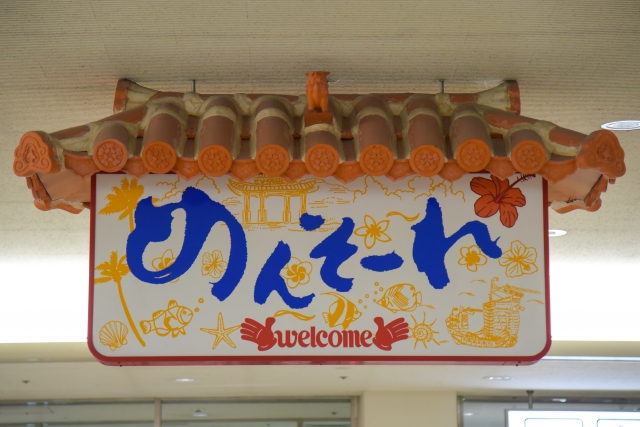Many foreigners come to live in Japan to study or work, but until they get used to living in Japan, most are puzzled by the differences in communication methods between Japanese and foreigners.
It can be said that the Japanese way of communication is so different compared to Europe and the United States.
In this article, I would like to explain the differences between the Japanese and non-Japanese ways of communication.

Join private lessons with the best tutors online or in-person, and learn Japanese efficiently.
Contents
- 1 Lack of smooth communication causes various problems
- 2 Differences between Japanese and non-Japanese communication methods
- 2.1 Foreigners like to argue and Japanese avoid conflict.
- 2.2 Foreigners are good at verbal communication, while Japanese are good at nonverbal communication.
- 2.3 Foreigners value “conversational tempo” and Japanese value “pauses”.
- 2.4 Foreigners tend to say the conclusion first and Japanese tend to say the conclusion last
- 3 It is important to compromise in a good sense rather than “insist.
- 4 Conclusion
- 5 Related posts
Lack of smooth communication causes various problems
In school, lack of communication can cause various problems, both large and small, but especially at work, the disadvantages can be fatal.
Mistakes will increase.
Increased risk of noncompliance
Deterioration of relationships with superiors and colleagues
Increased risk of information not being shared
Difficulty in achieving results
Thus, if there is a lack of communication, the overall level of work will certainly deteriorate.
As will be explained later, there is a big difference in the way foreigners and Japanese communicate, so forcing them to communicate according to your own sense of values will cause a sense of dislike, which will further worsen the relationship.
Therefore, the first step is to understand the differences in communication methods.

Differences between Japanese and non-Japanese communication methods
Now, let’s take a look at some specific differences in communication methods.
Foreigners like to argue and Japanese avoid conflict.
If you want to achieve great results at work, it is necessary to discuss how to achieve them, not only with the company as a whole, but also with each department or group.
Foreigners, who are more argumentative by nature, will state their own opinions and reach a conclusion after discussion if their opinions differ from those of their counterparts.
Japanese people, however, do not like conflict, so they do not engage in discussion (or if they do, they only argue lightly and do not discuss).
The Japanese have a saying that “silence is a virtue” and “the nail that sticks out gets hammered down,” and many people behave in such a way as not to make waves.
Foreigners are good at verbal communication, while Japanese are good at nonverbal communication.
Japanese people usually place great importance on nonverbal communication.
They read the feelings of others through facial expressions, gestures, and the atmosphere in the room, and determine what they should do and say.
In contrast, foreigners basically communicate directly with others through words.
Therefore, foreigners feel that “Japanese people do not express their intentions very well, so it is difficult to communicate with them.
Foreigners value “conversational tempo” and Japanese value “pauses”.
In Japan, there is a “pause” in which neither party speaks for a few seconds between conversations.
This is a characteristic of the Japanese habit of listening carefully to the other person’s conversation, and then forming one’s own thoughts before speaking.
Foreigners tend to proceed with conversation at a tempo that allows them to start speaking as soon as the other person finishes speaking, in order to minimize the amount of silence.
In other words, if either the Japanese or the foreigner is not in the other’s company, the difference in conversational tempo will increase the probability of an uncomfortable space.

Foreigners tend to say the conclusion first and Japanese tend to say the conclusion last
In the business world, there are many situations where you have to reach a conclusion on how to proceed with a project.
Foreigners tend to state the conclusion first, followed by the reasons for the conclusion.
In contrast, Japanese people tend to explain the current situation thoroughly and then state the conclusion at the end.
Therefore, when a foreigner works at a Japanese company, he or she may feel annoyed and wonder why they don’t say the conclusion first.
It is important to compromise in a good sense rather than “insist.
Japan still has a unique culture, and there are many areas where values differ greatly from those of Westerners.
For the aforementioned, communication methods at work are also different in many areas.
In this sense, it is important to compromise in a positive sense and to work with Japanese values to some extent.
However, not all Japanese are uncomfortable with the way foreigners communicate.
In recent years, there are many Japanese who have a lot of relationships with foreigners and understand the differences in communication methods, and there are also a certain percentage of Japanese who think, “Since there are differences in communication methods, I should adapt to them to some extent.
If you change your own sense of value in dealing with all Japanese people, you will feel a lot of stress, so you can practice your own way of communication with those who understand you.
Conclusion
In this article, we have explained the “differences in communication methods between Japanese and foreigners.
Many foreigners who actually come to work in Japan will realize the difference in communication methods.
If you understand the differences, you will be able to change the way you deal with them, and you will be able to do business with them successfully.










